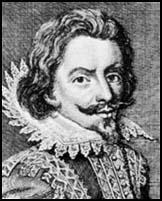Nathaniel Bacon

Nathaniel Bacon was born in Suffolk, England on 2nd January, 1647. A dispute with his wife's family persuaded him to emigrate to North America. With the financial support of his father, he purchased two estates along the James River in Virginia.
William Berkeley appointed Bacon to his governing council but the two men soon fell out about the development of the colony. Berkeley favoured a policy of containment, whereas Bacon wanted to expand into areas controlled by Native Americans.
In 1676 Bacon organized his own expedition. Fearing a large-scale war with Native Americans, Berkeley turned his forces against Bacon and his men. Bacon captured Jamestown and William Berkeley was forced to flee to the Eastern Shore. However, Nathaniel Bacon died of fever in October, 1676, and without his leadership, the rebellion quickly collapsed.
Primary Sources
(1) A supporter of Nathaniel Bacon wrote a detailed report of the rebellion but it was nor published in England until 1705. He was critical of William Berkeley who he believed did not do enough to stop attacks by Native Americans.
Frequent complaints of bloodshed were sent to Sir William Berkeley from the heads of the rivers, which were as often answered with promises of assistance. These at the heads of James and York rivers (having now most people destroyed by the Indians) grew impatient at the many slaughters of their neighbours and rose or their own defence, who choosing. Bacon for their leader, sent oftentimes to the Governor, humbly beseeching a commission to go against those Indians at their own charge.
Mr. Bacon, with fifty-seven men, proceeded until the fired the palisades, stormed and burned the fort and cabins, and (with the loss of three English) slew 150 Indians.
(2) Nathaniel Bacon was captured by William Berkeley but he escaped and raised another army to fight Native Americans.
General Bacon marched with 1,000 men into the forest to seek the enemy Indians; and, in a few days after, our next news was that the Governor had summoned together the militia of Gloucester and Middlesex counties, to the number of 1,200 men, and proposed to them to follow and suppress the rebel Bacon.
Bacon stormed it (Jamestown) and took the town, in which attack were twelve men slain and wounded, but Governor Berkeley, with most of the followers, fled back down the river in their vessels. Here, resting a few days, they agreed to the burning of the town. Mr. Lawrence and Mr. Drumond, owning the two best houses save one, set fire each to his own house, which example the soldiers following laid the whole town (with church and statehouse) in ashes, saying the rogues should harbor no more there.
Mr. Bacon returned from his expedition sick of a flux; without finding any enemy Indians, having not gone far by reason of the vexations behind him. Nor had he one dry day in all his marches to and fro in the forest while the plantations had a summer so dry as stinting the Indian corn and tobacco, etc. In a while Bacon died and was succeeded by his lieutenant general, Ingram.
